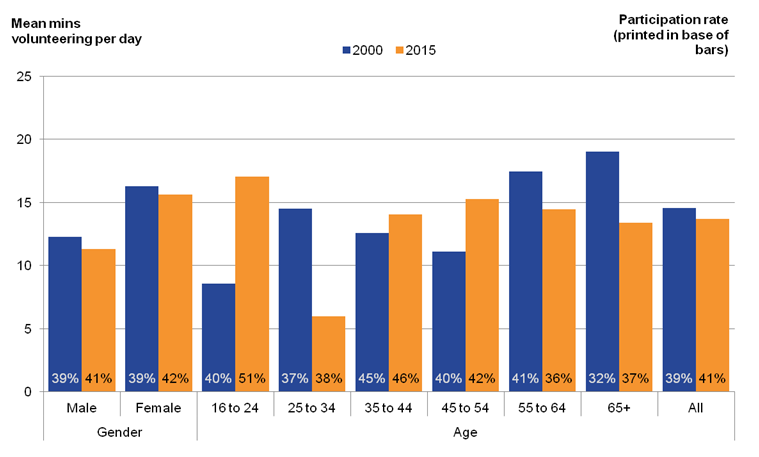Yesterday, the Office for National Statistics released data stating that people aged 16-24 volunteer more than any other age group. With stereotypes pinning young people as self-obsessed in the rise of social media, maybe they aren’t so brainwashed as psychologists suggest.
Between 2014 and 2015, the value of formal volunteering fell from £22.8bn to £22.6bn. This was mainly due to a fall in the total number of hours volunteered between these years.

With every retweet, every like, every photo shared on social media, young people are constantly under scrutiny for being too self-obsessed and concerned with each other’s lives. Young people are stereotyped to care more about social media than focusing on work.
Being a student or graduate is arguably tougher than it has ever been before. With a rising number of people opting to study for a degree after finishing college, more students and graduates are competing for entry level jobs. This, coupled with escalating university prices and leaving the European Union, young people are in for a tough future.
Despite this, the statistics suggest that students are both more likely to volunteer and also spend longer per day volunteering than those in paid work. Students now have more need for work experience with the increase in students with degree level qualifications.
At the University of Salford, Journalism courses now offer NCTJ, exams that provide an extra qualification when graduating to put students in better stead in the world of work.
Within the University of Salford, there are many societies to allow students to volunteer in different places. RAG, Raising and Giving are a society that continually hold events and volunteer for many different causes. Most recently, the group travelled around Manchester by foot to provide homeless people with blankets, food and drink.
Behind people aged 16-24, 50% of women from high income households volunteered over the year compared with 38% of women from low-income households with 38% of women from low-income households.
Howard Rheingold, a well Studied Lecturer on Virtual Community/Social Media at Stanford said:
“It’s legitimate to claim that our use of social media may be making us shallow, and it’s hard to dispute the finding of Pew Internet and American Life survey that one in six Americans admit to bumping into someone or something while texting and walking …”
Shafia Begum, a volunteer for RAG said: “It’s really nice sometimes to know that doing something so small can make such a big difference to someones day.
“Although it might not affect me so much, I can literally make someones day.”
